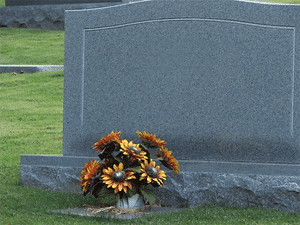Do you have questions about wrongful death claims in Idaho and have questions? Read this article, then contact our Boise attorneys today.
When a person is killed because of another person’s neglect or a company’s recklessness, Idaho law allows a lawsuit to be brought for wrongful  death. Until Idaho Code section 5-311 was passed, a negligent person had no responsibility if they caused an injury so severe it led to a death. The law now allows a person’s spouse, children, stepchildren, and parents to assert a claim for their losses when negligence or other wrongful act causes a death. In addition, any blood relatives or adoptive brothers and sisters who are “partly or wholly dependent” on the decedent for support or services may also recover compensation.
death. Until Idaho Code section 5-311 was passed, a negligent person had no responsibility if they caused an injury so severe it led to a death. The law now allows a person’s spouse, children, stepchildren, and parents to assert a claim for their losses when negligence or other wrongful act causes a death. In addition, any blood relatives or adoptive brothers and sisters who are “partly or wholly dependent” on the decedent for support or services may also recover compensation.
Idaho Wrongful Death Claims
Compensation In Wrongful Death Claims
The compensation (or damages) Idaho injury law provides in a wrongful death lawsuit is not the same as the damages that can be recovered in other personal injury cases. The loss being evaluated and for which compensation is provided in a wrongful death case is the loss of the relationship and the financial support experienced by the survivors.
In a personal injury case for example, the injured person can recover for “pain and suffering.” Those damages experienced by the person killed are not part of the wrongful death claim. And the grief or sorrow endured by family members caused by the death is not a part of the damage claim in an Idaho wrongful death case.
Economic Losses Recoverable in an Idaho Wrongful Death Claim
Medical expenses incurred prior to death:
- Funeral expenses;
- Loss of future income expected from the decedent that would have supported he claimant;
- Loss value of the household services (lawn mowing, cleaning, car repair etc. ) provided by the decedent.
Non-Economic Damages Recoverable in an Idaho Wrongful Death Claim
- Loss of the care, training, comfort and society of the deceased family member;
- For a spouse, the lost conjugal relationship.
All economic damage incurred can be recovered no matter the amount. The Idaho legislature, however, has limited non-economic damages. The law provides a limit of $250,000 per family member for a death claim. Each year that amount adjusts upwards slightly based on certain economic data.
Wrongful Death Statute of Limitations In Idaho
Idaho, like every other state has a legal time limit on when you are allowed to bring a wrongful death claim. Although there are exceptions, the basic Idaho statute of limitations in wrongful death cases is two years. This means that a lawsuit must be filed within two years of the date of the injured person’s passing. In the vast majority of cases, a lawsuit filed after two years will be thrown out of court.
However, there are some circumstances and factors that can change or delay the running of the two-year time period. And, if a governmental entity or a drinking establishment is involved you might be required to file a notice within 6 months.
The Lawyers of Holzer Hepworth Can Help
The lawyers of Hepworth Holzer, LLP have handled dozens of wrongful death claims and lawsuits during their many years of practice.
If you are facing the tragedy of the loss of a loved one through the negligence of a person, because of a dangerous product, a trucking accident or other collision, call us to discuss your situation. We understand how devastating an unexpected death can be emotionally and financially. Our goal to be the best injury lawyers in Idaho includes our commitment to compassionate and caring representation as your family deals with the heartbreak of losing a loved one.
We encourage you to call right away because there are important time limitations on Idaho wrongful death claims. John Janis or any one of the attorneys at the firm strand ready to review and evaluate your case


Pingback: Wrongful Death Auto Accident Cases | Idaho Wrongful Death Lawyers | Call Hepworth Holzer, LLP